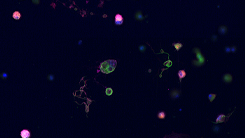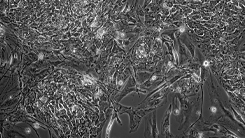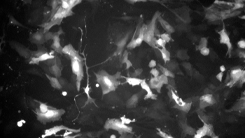HOW CAN WE HELP YOU? Call 1-800-TRY-CHOP
Thom Lab
We are hiring!
Please contact Dr. Thom to discuss open positions and projects.
The Thom Lab aims to harness human genetics to better understand blood cell formation and function. Current transfusion practices can be dangerous for some patients. For example, platelet transfusions can harm preterm babies. More efficient in vitro production of "baby" platelets would allow transfusion of more appropriate cells. In addition, many therapeutic modalities, clinical tests, and regenerative medicine applications rely on blood progenitor cells. Enhanced in vitro production of blood progenitors are needed to support these applications.
The lab uses genomics techniques to find non-coding regions, novel genes, and mechanisms that impact hematopoiesis. Recent projects have applied machine learning, genetic colocalization, and Mendelian randomization strategies to human genome-wide association studies and epigenetic data for this purpose. We are excited to incorporate additional cutting-edge techniques in future projects.
Induced pluripotent stem cell (iPSC)-derived blood cells may one day replace donated blood products, but cell yields are currently inefficient. They use genetically manipulated iPSC models to test how novel genes and loci impact blood cell formation and function, with an eye toward genetic changes that enhance cell yields. Single cell analyses of developing iPSC-derived blood cells will allow us to tailor genomics predictions that increase in vitro production.
The Thom Lab receives funding through the National Heart, Lung, and Blood Institute; National Institute of Child Health and Human Development; American Academy of Pediatrics; and CHOP to support their work.



